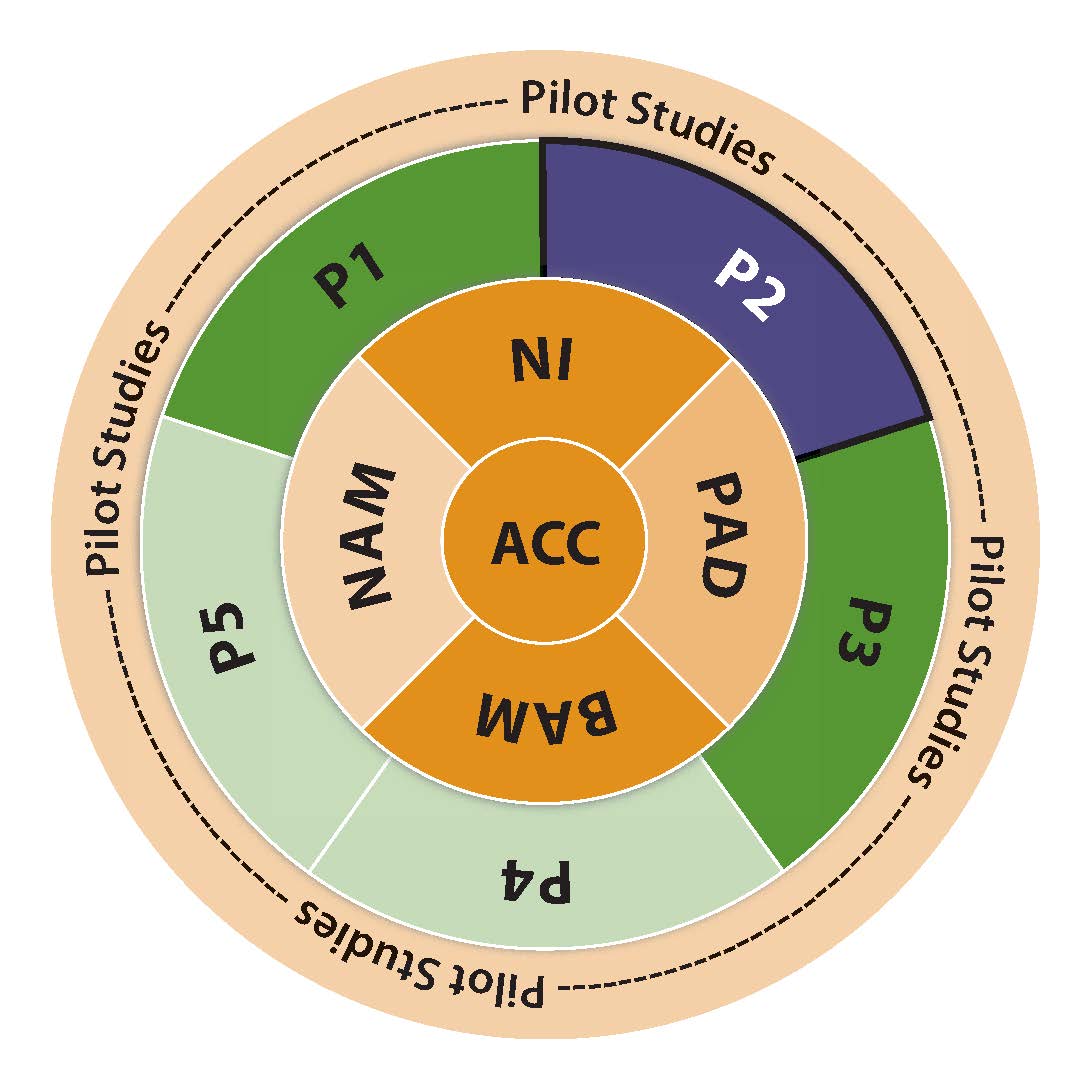PROJECT 2 (P2)
Altered Frontostriatal BOLD and Functional and Structural Connectivity During Risky Decision-Making and Instrumental Learning
Project Director: Amanda B. Grethe, Ph.D.Co-Investigators: Susan Tapert, Ph.D.; Assawin Gongvatana, Ph.D.
 Summary:
Summary:
The prevalent use of METH among individuals with HIV infection represents a “double epidemic” that has serious consequences involving neural and behavioral alterations. Both HIV and METH independently alter brain function within dopaminergic regions, and their comorbidity likely preferentially impacts goal-directed behavior and risky decision-making due to altered reward and punishment processing and expectancy. This is supported by our prior work demonstrating an HIV by METH interaction for functional magnetic resonance imaging (fMRI) blood-oxygen-level dependent (BOLD) response to reward expectancy within the ventromedial prefrontal cortex and anterior cingulate, as well as impaired responses within anterior cingulate and striatum during risky decision-making. An emerging concern is the possibility that aging might exacerbate neurocognitive dysfunction already prevalent in HIV-infected individuals, particularly on reward-related decision-making and learning behaviors. Building from our prior findings, the aims of the current project involve state-of-the-art multi-modal MRI methods that are used to query both functional brain responses (BOLD/fMRI) and the underlying connectivity between brain regions relevant to the decision-making process (diffusion MRI and resting BOLD). We also aim to determine the modulatory effects of aging on HIV and/or METH effects. We will examine four groups of 30 well-characterized individuals stratified by HIV serostatus and METH dependence diagnosis from the primary TMARC cohort (total N=120). Participants undergo fMRI to probe limbic and cognitive circuitry using three experimental paradigms:
- Probabilistic associative learning with positive and negative feedback
- Risky decision-making
- Resting state (task-free) fMRI
Relevance:
Reward processing and risk-taking are important processes that influence behavior, change throughout one’s lifespan, and are altered in substance using and HIV+ individuals. This project is examining the neural circuitry of these behaviors in HIV+ and METH-dependent individuals. Understanding these relationships and how aging may worsen their dysfunction may inform interventions aimed at altering risky behavior.
